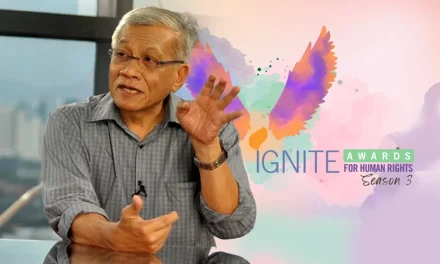By Nicola Bullard
In the past year, the movement against war and corporate globalisation has continued to grow, especially at the national level where movements and coalitions are directly defending workers’ and farmers’ livelihoods, reclaiming land and the commons, and campaigning against privatisation and trade liberalisation. In many parts of the world, from Bolivia to Thailand, social movements have successfully pressed their governments to reconsider or change economic policies. Similarly, public opinion has forced many countries that joined the “coalition of the willing” at the onset of the war on Iraq to withdraw their troops, most dramatically in Spain, but also in smaller countries such as Honduras and the Philippines. Most recently Ukraine and the Netherlands have announced that they, too, will bring home their troops.
In the same year, however, George W. Bush was re-elected with an increased majority and a clear mandate, the war in Iraq continues in spite of the gathering resistance and mounting death toll, and the WTO rekindled from the ashes of Cancun a new agreement for trade negotiations. War and trade are still key issues for the international movement. Tragically, it has taken the devastation of the Indian Ocean tsunami to bring debt back to the centre of our campaigns. The WSF will be an important moment to hear from activists from the effected countries how we can support the efforts of communities to shape their own “reconstruction” and to re-energise and transform the debate about debt and relief to one on structural adjustment and democratic development.
Trade, war and debt are the overarching campaign issues, while the main strategic debate will centre on how the movement should re-group and re-organise in the current context. How do we challenge Bush? What is the perspective of the movement in the US? Should we be focussing on just one or two international campaigns or targets? And if so, who or what is the target? How do we maintain space for all struggles and all sectors yet at the same time coordinate our efforts to make concrete gains and open democratic space at every level?
In this sense, the “agenda” is not so different from other Forums, however this year the process promises to be as important as the content. For the first time, the entire WSF programme is “self-organised” by the participants, reflecting a conscious effort to build a space and process which is horizontal and open, and which encourages cross-fertilisation across political, sectoral, geographic, cultural and language barriers.
In addition, the physical organisation of this year’s WSF will be different. All the events are in a continuous space, stretching along the lake shore and including the youth camp. The design and implementation attempts to incorporate ecological, social, sustainable and solidarity approaches. For example, the Brazilian landless movement, the MST (in collaboration with the Brazilian army) is constructing the tents where many events will be held, and most of the materials, equipment and food are locally supplied. Innovative translation equipment developed by Nomad, a network of IT activists, and the volunteer efforts of more that 1,000 activist translators and interpreters organised through the Babels network, will help us speak to each other.
The programme itself has been arranged in eleven “terrains” with organisations self-selecting in which terrain they place their event. The Brazilian committee has encouraged those organising similar activities to group and merge with each others in an attempt to create dialogue, cooperation and new synergies. How this works is to be seen.
In addition, the growing number of “strategy” sessions in the WSF programme is a sign of maturation. Increasingly, the WSF is becoming an “active” space created by us all, for developing strategies, building campaigns, making and sharing proposals, and finding ways of working together on common projects and agendas long after the WSF is over.
The 5th WSF is an experiment in building a living political, economic and social community based on the principles that are the foundation of the WSF and of the international movement against war and corporate globalisation: social and economic solidarity, ecological sustainability, pluralism, openness, diversity and non-violence. This year we will see whether the principles that unite us can be put into practice for five days on the shores of the Guaiba Lake.
Nicola Bullard
Focus on the Global South







